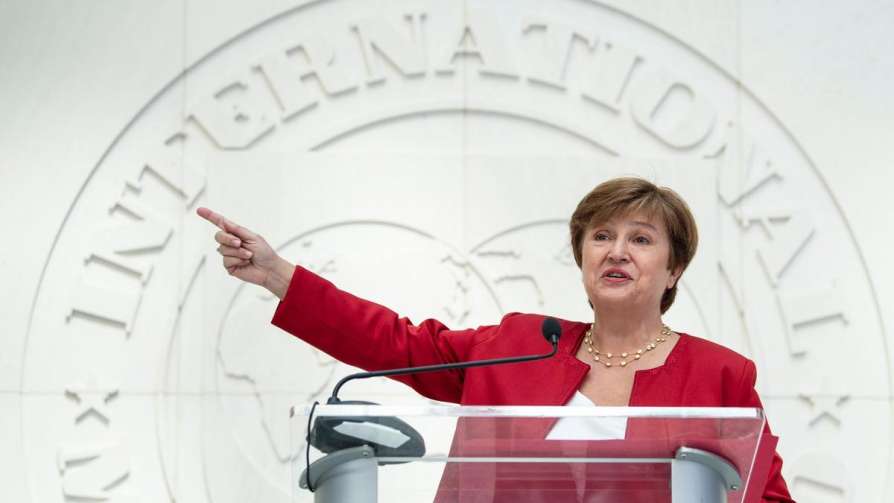WASHINGTON: Bulgaria’s Kristalina Georgieva has been selected as the new head of the International Monetary Fund, the first person from an emerging market economy to lead the IMF at a time when, she said, “global economic growth continues to disappoint and trade tension persist”.
The 66-year-old economist, who succeeds Christine Lagarde, has been appointed for a five-year term, starting on October 1.
Georgieva was the World Bank CEO since January 2017 and was interim president for the World Bank Group from February 1 this year to April 8.
“It is a huge responsibility to be at the helm of the IMF at a time when global economic growth continues to disappoint, trade tensions persist, and debt is at historically high levels,” she said in a statement.
Georgieva said her immediate priority is to help countries minimize the risk of crises and be ready to cope with downturns.
“Yet, we should not lose sight of our long-term objective — to support sound monetary, fiscal and structural policies to build stronger economies and improve people’s lives. This means also dealing with issues like inequalities, climate risks and rapid technological change,” she said.
With 189 members, the IMF works for global monetary cooperation, financial stability, facilitate international trade, and for reducing poverty around the world. Its head traditionally has been a European since it was created in the aftermath of the Second World War in 1945.
Georgieva said she is a firm believer in its mandate to help ensure the stability of the global economic and financial system through international cooperation.
“Indeed, in my view, the Fund’s role has never been more important,” she said.
Georgieva said he is “deeply honoured” to have been selected as IMF managing director.
“I want to pay tribute to my predecessor, Christine Lagarde, a great leader and a dear friend, whose vision and tireless work have contributed so much to the continued success of the Fund.”
Starting in 2010, she was at the European Commission, serving as commissioner for international cooperation, humanitarian aid and crisis response, then as vice president for Budget and Human Resources.
Georgieva has a Ph.D. in Economic Science and a M.A. in Political Economy and Sociology from the University of National and World Economy in Bulgaria, where she also taught from 1977 to 1991. PTI







